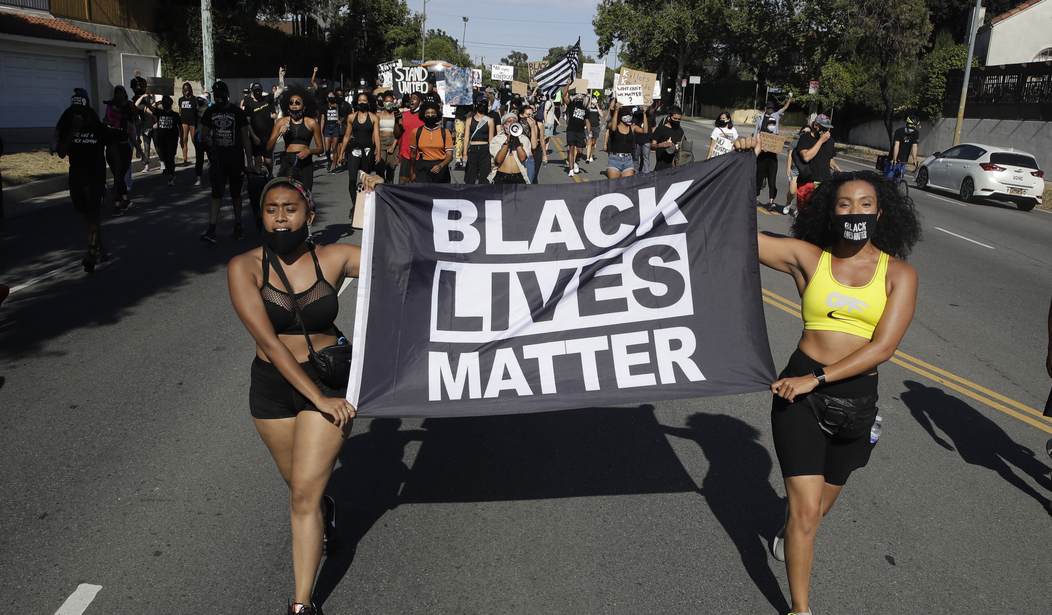Ward Connerly, a civil rights leader who is older and wiser than I, writing in The Wall Street Journal over the weekend, asserts that there is no such thing as institutional racism in America. Frankly, I am relieved, because I have lived in this country for decades, and it has been some 40 years since I encountered a racist, a white supremacist, or even a Euro-maniac.
I have encountered some left-wingers — once politely called liberals — who are obsessed with race, but even these troubled souls I do not consider racists, though some might be. They are more properly referred to as bigots, and intolerant bigots at that. They, of course, call anyone who might disagree with them "racists," but I have tried to verify their charges from time to time, and I have been unsuccessful. They, as a rule, present no evidence that race is even at issue. In point of fact, I have found that, in debate, the first person who brings up the matter of race is usually the real racist. For instance, if I were debating Jesse Jackson or Al Sharpton, either one might bring up the question of race before I would utter the word, and Al might talk about nothing else.
It is a major element of most leftists' harangues today to claim that America is a racist country. If one asks for the evidence, the answer usually is no more substantive than, "Look around you." Well, I have looked around, and all I see is diversity being practiced (often by reverse racists) and African Americans in high office — for instance, Barack Obama in the Oval Office, elected by a majority of American voters.
Recommended
Connerly can indeed recall when America did have manifestations of institutional racism. He can point to Americans being "denied the right to vote based on the color of their skin." That was "systematic racism," he writes. He elaborates, "When small children and college students had to be ushered to school by the National Guard, past defenders of state laws and policies that sought to maintain racial segregation, that was systemic racism," and he continues with other examples of racism that are astonishing to modern-day civil libertarians. Yet all are matters of history. They have been outlawed since the 1960s, over 50 years ago.
Connerly, a man born in 1939, writes that he "became a full American just after my 25th birthday, when the Civil Rights Act of 1964 became law." The law passed with a bipartisan majority in the Senate. Yet a new divisiveness was creeping into the polity.
Before the 1964 Civil Rights Act was passed, President John F. Kennedy issued Executive Order 10925, which, in 1961, first used the term "affirmative action." It ordered federal agencies for the first time to take "affirmative action to ensure that applicants are treated equally without regard to race, color, religion, sex, or national origin." Bravo! Then, in 1965, President Lyndon B. Johnson reversed things. He signed Executive Order 11246, changing the point of Kennedy's executive order from nondiscrimination — "without regard to" race — to one that sought "results" based on race.
Then "affirmative action" was adopted by the Democratic National Convention for its 1972 convention, though its categories were expanded to include others beside racial groups. Soon, affirmative action became the law of the land, and the fragmentation of America was upon us. The stage was set for today's narrative that Connerly says is fueled by "racial paranoia, division and hatred." Actually, the "division and hatred" are fueled by more than racial paranoia. They are fueled by gender paranoia — all kinds of gender paranoia — feminist paranoia, youth paranoia, every kind of group and subgroup paranoia that one can dream of.
Connerly concludes his important essay by stressing the significance of "being equal." He grew up in segregated Louisiana, and he writes: "I can attest to the significance of the equality principle. Being equal gives citizens that essential feeling of belonging." Connerly quotes Martin Luther King Jr. on how "being equal" feels. "Free at last! Free at last!" Yet Connerly is cautious. Regarding the relations between the Black community and the rest of America, concludes Connerly, "Our national performance thus far hasn't been encouraging."
R. Emmett Tyrrell Jr. is founder and editor in chief of The American Spectator. He is a senior fellow at the London Center for Policy Research and the author, most recently, of "The Death of Liberalism," published by Thomas Nelson, Inc. To find out more about R. Emmett Tyrrell Jr. and read features by other Creators Syndicate writers and cartoonists, visit the Creators Syndicate webpage at www.creators.com.

























Join the conversation as a VIP Member